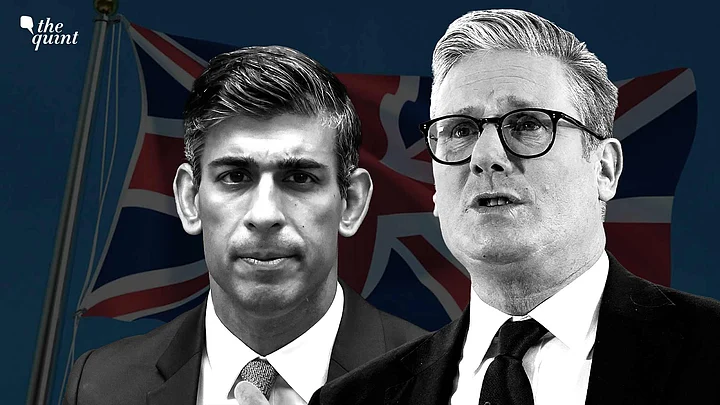“Change begins now, and it feels good” – the words with which Britain’s new prime minister, Keir Starmer, acknowledged his landslide victory in Britain’s general election. The party Starmer leads, Labour, has more than doubled the number of its MPs in Parliament. After fourteen years out of power and four successive election defeats, Labour will have one of the biggest Parliamentary majorities in modern British history.
For Rishi Sunak and the Conservatives, the humiliation is profound. The party will have just 120 or so of the 650 seats in Parliament. It’s the worst result in the party’s history. Across the country, seats which were seen as rock solid Conservative have been captured by their opponents.
It marks the end of Sunak’s twenty months in office – the first person of colour to become prime minister – and probably the end of his career at the top level of politics. He is likely to stand down as leader of the Conservative party, if not straight away, then within a matter of weeks.
For months, the opinion polls have pointed to a comfortable Labour victory. The Conservatives are seen as divided, discredited and out-of-touch. Rishi Sunak has some big achievements to his credit – he has been a leader of integrity after the shambles of Boris Johnson’s years as prime minister, and he has presided over a steady improvement in the economy. But he never managed to overcome the acute faction-fighting in his party, and he also displayed poor political judgement. It’s difficult to describe Sunak’s time in office as anything other than a failure.
He faced the formidable problem of fighting political battles on several fronts at the same time. His main opponent was a revitalised Labour Party, which had marginalised its left-wing, banished its reputation as a tax-and-spend party, and rebranded itself as cautious and competent.
In some of the more prosperous corners of England, a centre party, the Liberal Democrats, captured dozens of previously Conservative seats. And Rishi Sunak also faced a rival on his right flank. A new political force, Reform UK, accused Sunak of failing to deliver on his promise to limit immigration. Although Reform UK will only have a handful of seats, it attracted millions of votes – most from the Conservatives.
It’s a real irony that Rishi Sunak, famously the son of immigrants of Punjabi heritage, has been swept from power in part because he has failed to stop new waves of immigration.
The election also marks a change in the shape of British politics. Although the Conservative vote collapsed, Labour’s share went up only slightly. And although Keir Starmer will have a huge majority in the new Parliament, his party won just 35 percent of the vote – the lowest-ever share of the vote for a party with an overall majority in the House of Commons.
British politics has been dominated by two parties, Labour and Conservatives, for more than a century – but in the latest election, four-in-ten of the votes cast went to other parties. And turn-out was low by British standards at a little over 60 percent. Taken together, this points to a growing distrust of politicians and conventional party politics.
Keir Starmer, a lawyer by background, is unlikely to usher in dramatic changes. He has pledged to abandon Rishi Sunak’s controversial – and some would say heartless – scheme to deport asylum seekers to Rwanda in central Africa. And he has promised to build lots more houses and reduce waiting times for treatment on the state-funded and over-stretched health service. But he has also pledged that taxes will not go up, and that Britain will remain open to investment and supportive of business.
On foreign policy, too, there will be little obvious change of direction. Britain will continue to support and arm Ukraine in the face of Russia’s invasion, and will maintain links with Israel while calling for a ceasefire in Gaza. The new Labour government may be more willing to express concerns about human rights observance, but it will be careful to maintain good relations with allies such as India.
In global terms, Britain seems to be bucking the trend by turning left when other major democracies such as France and the United States seem to be heading in the other direction. Keir Starmer will be Britain’s fourth prime minister within two years, such has been the political volatility. And while Labour’s campaign has been about change, what many voters want most is simply stability.
(Andrew Whitehead is a former BBC India correspondent and also reported on British politics for the BBC. This is an opinion article and the views expressed are the author's own. The Quint neither endorses nor is responsible for them.)
(At The Quint, we question everything. Play an active role in shaping our journalism by becoming a member today.)
